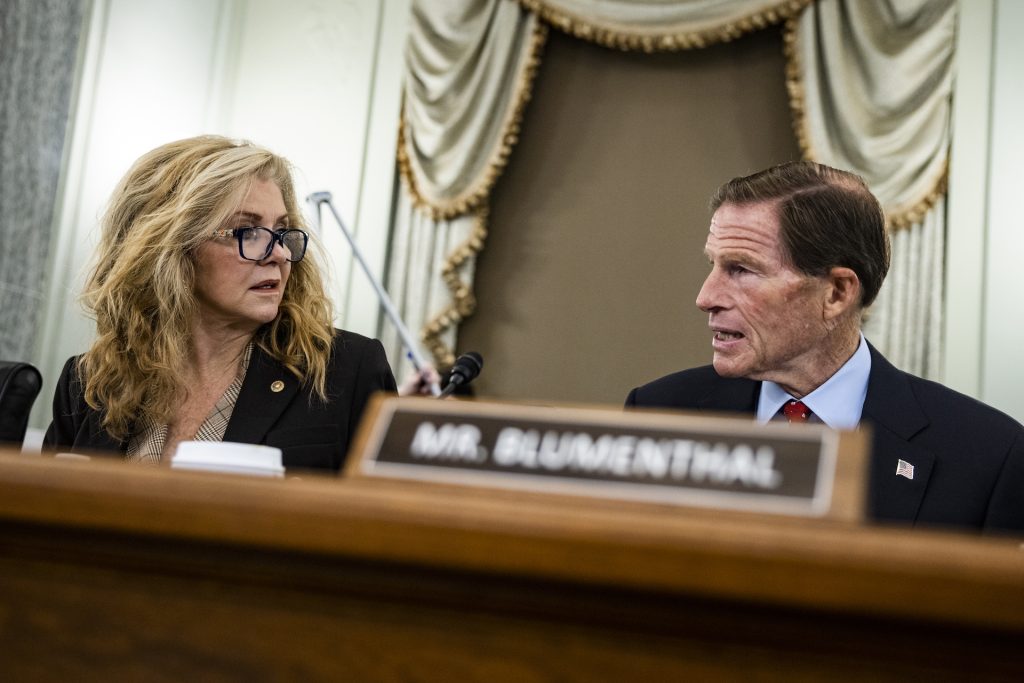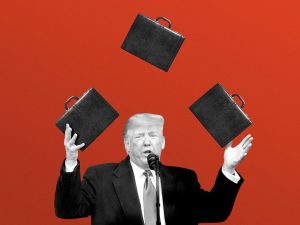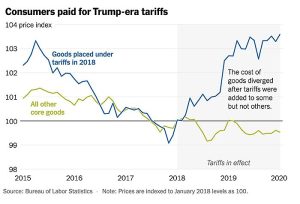Controversy Over Kids Online Safety Act Sparks Censorship Concerns

WASHINGTON, DC - OCTOBER 26: (R-L) Committee Chairman Sen. Richard Blumenthal (D-CT) and Ranking Member Sen. Marsha Blackburn (R-TN) talk before a Senate Subcommittee on Consumer Protection, Product Safety, and Data Security hearing on “Protecting Kids Online: Snapchat, TikTok, and YouTube” on October 26, 2021 in Washington, DC. Social media companies have come under increased scrutiny after a whistleblower exposed controversial issues with Facebook and how they utilized algorithms to increase user engagement. (Photo by Samuel Corum/Getty Images) *** Local Caption *** Marsha Blackburn; Richard Blumenthal
Sen. Marsha Blackburn, R-Tenn., spoke at a news conference on the Kids Online Safety Act at the U.S. Capitol on July 25, 2024, where proponents claimed the bipartisan bill aimed to protect children from online harms for the first time since 1998. The legislation, formally known as S. 1748, requires social media platforms, video games, messaging apps, and other online services to implement safeguards for users under 17, targeting issues like bullying, eating disorders, self-harm, and suicide.
The bill’s broad language has garnered 40 bipartisan cosponsors, but critics argue it poses significant risks. Last year, a similar measure passed the Senate with only three opposing votes: Sens. Rand Paul, R-Ky., Mike Lee, R-Utah, and Ron Wyden, D-Ore. They warned the law could enable government censorship by allowing the Federal Trade Commission (FTC) to determine which content is “harmful” and subject to removal.
Wyden argued that the bill might target privacy tools like encryption, which protect minors from predators. Paul contended it would stifle free speech and technological innovation, while Lee criticized its failure to address online pornography. The concerns echo fears about the UK’s Online Safety Act, which critics say has been used to suppress discussions about serious issues, including child exploitation, while also restricting access to platforms like Spotify and Wikipedia.
The author of the article, Jared Whitley, warns that similar legislation in the U.S. could lead to dangerous overreach, citing the potential for future administrations to misuse censorship powers. While acknowledging the need for safeguards against tech’s addictive design, he argues that KOSA risks duplicating the UK’s flawed approach, where “government bureaucrats” prioritize control over individual rights.
The piece concludes with a call to reject the bill, framing it as a threat to free expression and a slippery slope toward authoritarianism.







